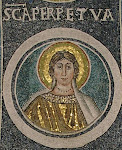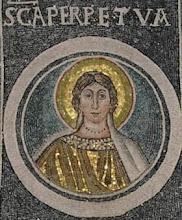I saw Gran Torino last night, and although it was dripping in racial epithets, I experienced it as having profoundly Christian themes. Since the review at Christianity Today doesn't go into what interested me, I've decided to post this reflection. For me, the film was about confession and forgiveness of sins, the love of one's neighbor and ultimately the laying down of one's life for one's friends. I was particularly interested in the issue of confession of sin as we have been discussing that at Not Another Episcopal Church Blog, Creedal Christian and now tonight at Stand Firm in Faith.
In the film, the main character Walt is a sad and lonely man, which appears at first to be the result of his wife's death and his estrangement from both his sons and his neighbors. But as we get deeper into the film, we come to understand that Walt is carrying unresolved guilt from the time he was in the Korean War.
Walt's neighborhood has become an enclave of Hmong immigrants and for Walt, they are similar to the Koreans he fought in the war. The young priest of his parish hounds him to make a confession, as the priest had made a death bed promise to Walt's wife that he would do this for her.
A series of circumstances draws Walt into the role of father figure to the Hmong family that lives next door. Walt teaches the teenage neighbor boy, Thao, what it is to be a man, Walt style. A man must have a job, a girl and a car. A man knows how to fix things around the house and has the tools to get the job done. And Walt has guns and uses them in various situations for the defense of his property and his neighbors.
Walt never confesses to the priest what is really bothering him. In a scene in a bar, the priest thinks it might be something he did during the war when he was obeying orders. Walt says it is not what you did when you were obeying orders that haunts a man.
Later, Walt comes to the church to make a confession. The priest is painfully inept. Walt confesses to having kissed a woman during a party when his wife was in the next room and feeling responsible for his estrangement from his two sons. The priest is disappointed and we wonder if Walt would have shared more with a different priest.
So Walt does not get the genuine experience of forgiveness of sin offered by the church. He leaves having performed only an outward show of confession. What was really preying on Walt's soul was that he had shot a young Korean who was trying to surrender. We don't learn exactly how it happened, but get the sense that Walt acted in the moment of the situation, then quickly realized he had killed someone who was not a threat.
The plot builds so that Walt's method of dealing with trouble, by using his guns, is no longer tenable. Gran Torino is another film in Eastwood's series of atonements for the revenge fantasies he stoked in his Dirty Harry days. But this film moves beyond merely showing the futility and devastation caused by revenge as in Unforgiven and Mystic River. In Gran Torino, Eastwood shows another way forward, offering a vision of atonement.
Subscribe to:
Post Comments (Atom)





9 comments:
Gran Torino is very overtly borrowing from the gospels, whether to showcase the moviemakers' artistic merit or because of religious conviction, we do not know.
Walt, for all his faults, is made to be a likable character. He says what many people dare not say, and he does what we are afraid to do. The viewers no doubt side with him when he pulls out a gun to prevent Thao from being beaten from a gang, or pulls a gun out again to prevent "Sue" fron being man handled at a street corner, or AGAIN pulls out a gun as a "just" act of vengence when the gang robs Thao.
For all of his good intentions and "just" responses, for which we chear for the character, what we see in the end is the fruits he created. While Thao might have just been beat up by a gang, Walt's attempt to rectify things the only way he knew how (through violence) resulted in the shooting at Thao and Sue's residence AND Sue's terrible rape and beating. How else would a gang respond to violence, no matter its apparent justness? With more violence.
Walt after the event turns to violence, destroyingn things in his house, and appears resolved to kill every one of those gang members. He is quoted as saying "as long as that gang is around, they [Sue and Thao] can never live."
The audience expects the ultimate act of just vengence. Walt locks up Thao to prevent him from killing any gang members, since he did not want Thao tio share his past sins in Korea. He then approaches the gang, and just when the audience expects him to pull out a weapon, he pulls out a cigarette lighter. The gang misinterprets this and shoots him to death in front of a neighborhood of witnesses. His dead body is in the shape of the cross, his hand drip with blood, and he gives his life up so others may live (Thao and Sue). Hello, does this smack of Jesus anyone???
So, the movie in the end is a morality play, place human justice on one end and Christ-like justice on the other. Though we admire both, our resort to the former has made our planet a brutal one, it has devistated our neighborhoods, and turned many away from God. St. Paul says, "God's weakness trumps man's strength" in first Corinthians. Walt dying by being shot, Jesus dying on the cross, erased more iniquities than any Dirty Harry act of vengeance ever can.
Hi J,
Thank you so much for leaving this comment. You have explained how the theme of vengeance is played out in the film so well. We, the audience, shared the desire for revenge and then vicariously lived through its aftermath.
When Eastwood explored this theme in Unforgiven and Mystic River, we also saw the terrible results of revenge. What was beautiful for me in Gran Torino was the addition of the "willing sacrifice" to move the community beyond the cycle of revenge. Walt planned his death/visit to the gang house so that there would be witnesses and the gang members would go to prison for a long time, giving Thao and Sue freedom to live.
Beautiful is definitely the word. And the crescendo in the movie leading to that scarifice more vividly captured a shadow of God's love for us epitimized (sp) in Christ's death and resurrection than The Passion, or any other movie or book I saw (excluding the Bible, the church fathers...you know, the classics.) To me, Gran Torino is a classic of our time. But that's a very personal thing I suppose.
I've seen it twice and would be happy to go again.
I love Gran Torino!
Eastwood's character acted with integrity by coming to a solution that benefited everyone involved.
I saw Gran Torino on a plane home from the UK earlier this week, and found it an intensely moving story if redemption. I was so impressed with it's deeply theological vision that I started reading the reviews from all the major places, such as the NYT and Washington Post and others, and was disappointed that none of them touched on the spiritual journey of the film! For me, this is the kind of art Christian artists should be producing--I.e., art with realistic view of the world, and realistic view of what love of and sacrifice for others looks like in the world. Christian discipleship is not easy, and calls for challenging action, but at the same time it is beautiful and changes the world profoundly. This film captures that!
Edward, I agree.
"Profoundly Christian", i couldn't agree more. Just saw it the other night and was pleasantly surprised with the movie. When the credits rolled, i said, "best Christian film of the year," which completely confused my Christian mother-in-law. I think it should a believable change in character, change in lifestyle, and genuine change of heart, all concluding with a very Christlike sacrifice, even falling to the ground in a crucifix position. I think what most "real" Christian films are missing is the grit of real life that is portrayed here. Too often we see nicely pressed shirts and pants worn by all the characters in a "Christian film", cardboard acting, repetitive themes and storylines, and not much that looks like real life. But on the other hand, you have a "Christian audience who will complain loudly if they hear swearing, see a boob, or a killing in an otherwise Christian film, yet this is the same audience that will see "Gran Torino" and not bat an eye seeing what they would not tolerate in an overtly Christian film...so the Christian filmmaker is stuck in a very artificial and very limited world in which to portray redemption.
Hi Tad,
Very interesting reflection. Thank you for this.
Post a Comment